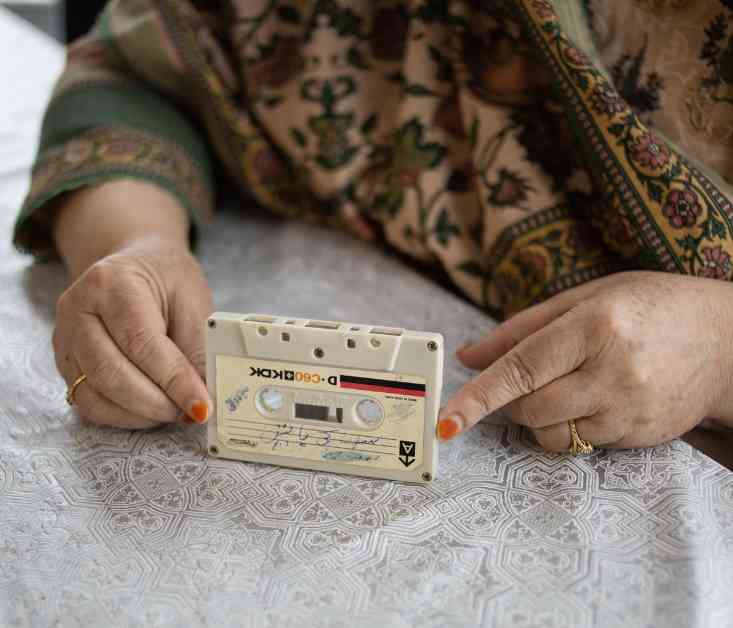In Glasgow, Aqsa Mohammed’s family received emotional cassette tapes from Pakistan, causing tears of joy and nostalgia. The Tape Letters Scotland exhibition sheds light on the use of audio cassettes for long-distance communication within the Pakistani diaspora in Scotland from the 1960s to the 1980s. The exhibition, based on firsthand interviews and actual tape recordings, explores migration, identity, and language among Scotland’s Pakistani communities.
Before the era of voice notes, sending physical cassette recordings was a popular and affordable way for British-Pakistani communities to stay connected. The intimacy of recorded messages allowed for personal communication, especially for those who couldn’t afford international calls or write letters. However, this practice has largely been forgotten, with many original tapes lost or erased over time.
The Tape Letters project by Modus Arts aims to preserve this unique form of communication by collecting and archiving stories from cassette tapes and oral histories. Participants like Tabassum Niamat, Munwar Sultan, and Fariha Khan from Glasgow shared their memories of recording messages for loved ones in Pakistan. The excitement of preparing and recording messages on cassettes added a personal touch to long-distance communication.
Abdul Latif Aziz reminisces about his childhood memories of cassette recordings in Pakistan, highlighting the communal aspect of gathering around a cassette player to send greetings and messages. The project features stories from 20 cassette tapes and 80 oral histories, showcasing the diverse experiences of Pakistani communities living in Scotland.
Wajid Yaseen, the Director of Modus Arts, reflects on the significance of the Tape Letters project in preserving a unique form of communication and connecting people across borders. The exhibition at Glasgow’s Tramway from October to January promises to bring these forgotten stories to light and celebrate the cultural heritage of Scotland’s Pakistani communities.















